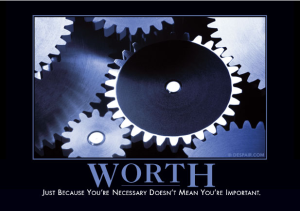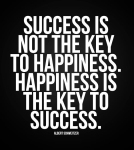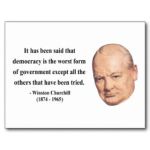Distinguishing Recognition from Appreciation
 I noticed something while writing the last post. Particularly the question on “recognition practices.” The survey draws a distinction (and the variance proves it) between recognition and feeling valued. In a recent TedX talk, Mike Robbins (author of Focus On the Good Stuff, Be Yourself: Everyone Else is Already Taken, and Nothing Changes Until You Do) discusses how organizations get these terms confused all the time and while related, they are not the same.
I noticed something while writing the last post. Particularly the question on “recognition practices.” The survey draws a distinction (and the variance proves it) between recognition and feeling valued. In a recent TedX talk, Mike Robbins (author of Focus On the Good Stuff, Be Yourself: Everyone Else is Already Taken, and Nothing Changes Until You Do) discusses how organizations get these terms confused all the time and while related, they are not the same.
Robbins defines recognition as “positive feedback based on results or performance.” This is akin to saying “good job on XXX” or honestly, just “good job” is still recognition (though less specific.) Tom Peters in his book, In Search of Excellence says, “celebrate what you want to see more of.” Makes sense and it’s motivating towards specific behaviors. However, Robbins goes on to say, because recognition is tied to behavior, it is scarce and finite – it’s only meaningful when you have successes and generally it has to come from the top down “for it to really have weight and merit.”
Appreciation on the other hand does not suffer from such limits. As Robbins defines it, appreciation is “more about people – about who they are not just what they do.” He goes on to explain that while recognition is not appropriate and can even be condescending in times of challenge or failure, appreciation is always valued and can lead to higher performance and engagement even when times are tough.
What’s more is how recognition versus feeling valued impacts performance. A study from the Haas Business School at UC-Berkeley showed that when people felt recognized for the work they did, they were 23% more productive than those who didn’t. But what is surprising is how much more productive people become when they simply felt valued and cared for as a human being. According to the study, employees were 43% more productive when they felt valued versus people who didn’t – nearly twice the return by simply giving some either a literal or metaphorical “pat on the back”.
Sure that plaque is nice, the bonuses are good; but as more than one study shows, people will leave all of that behind if they don’t feel valued. Just because you recognize someone’s accomplishment, it doesn’t necessarily make them feel valued.
NOW WHAT?
Here is the beauty of appreciation. It means something to everyone regardless of where it comes from. When my 6-year-old son out of the blue tells me “I am amazing” that hits home. When a colleague says “thank you for just being you,” that means something. When you feel as though someone cares about you as a person, not an employee, it matters.
Yes, we need to encourage and recognize what people do and the contributions they make. Those can be (and have been) systematized, tied directly to performance metrics, and awards, trips, or bonuses are doled out accordingly. But perhaps an often neglected part of our day is taking time to show people we care not about what they can do but rather about who they are as a person, and maybe, just maybe that is the missing ingredient.
FREE or LOW-COST WAYS TO SHOW PEOPLE THEY ARE VALUED
– Genuinely care more for them as a person than what they can offer you or your dept/P2
– Give them feedback
– TELL THEM you value you them and why
– Say “Thank you”
– Know their interests and be curious
– Do the “little things” that brighten people’s day
– Give them access to who you are
– Invest in their success
– Compliment them
– Ask them about their passions
– Send them links to articles you think they would enjoy
– Respect their life outside of what they do
– Tell them you believe in them
– Listen (I mean, really listen – turn off the phone and close the computer)
– Give them a card from you
– Challenge them (followed closely support)
– Encourage safe failures
– Tell them more about what is going on
– Make them accountable (and give them the tools to execute)
– Support their autonomy
– Offer to help (then help)
– Ask for help
– Take them to lunch, coffee, happy hour
– Encourage them to appreciate others (and give them some room to do it)
– Treat them as people (not as “employees”)
– Be polite
– Ask them for input
– Apologize when you are wrong
– Give them credit

 When I first moved to Colorado I was enamored with all the outdoor activities that were possible and I promised myself I would try them all. A number of years ago, I decided that summer would be about learning to whitewater kayak. I had a friend who was a professional kayaker and he offered to take me and a friend out at a nearby creek that was mellow enough we could practice.
When I first moved to Colorado I was enamored with all the outdoor activities that were possible and I promised myself I would try them all. A number of years ago, I decided that summer would be about learning to whitewater kayak. I had a friend who was a professional kayaker and he offered to take me and a friend out at a nearby creek that was mellow enough we could practice.







